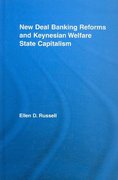Answered step by step
Verified Expert Solution
Question
1 Approved Answer
1. Which of the following discoveries solved the problems associated with barter? * A. Specialization B. Money C. division of labor D. Comparative knowledge 2.
1. Which of the following discoveries solved the problems associated with barter? * A. Specialization B. Money C. division of labor D. Comparative knowledge 2. Paper money and coins are known collectively as A. Currency B. The units of account C. securities D. reserve requirements 3. Cattle is an example of * A. coins B. commodities C. bank notes D. tobacco 4. Money, weapons and tools can come from * A. barter B. crypto-currency C. metal D. stones 5. Bitcoins are an example of * A. barter B. crypto-currency C. metal D. stones 6. The paper money and coins a country uses is called its _______________________. * A. barter B. crypto-currency C. monetary system D. stones 7. The United States ________________________ primarily produces circulating coinage for the United States to conduct its trade and commerce. * A. Mint B. Treasury C. Federal Reserve D. Supreme Court 8. The _______________was created by Congress with the Coinage Act of 1792, and originally placed within the Department of State. * A. Supreme Court B. Mint C. Treasury D. Federal reserve 9. The ______________________ is responsible for issuing all government bonds, notes and bills. * A. Treasury B. Mint C. Supreme Court D. Stock Market 10. The rise in the average price of goods and services in the economy is known as __________________. * A. Inflation B. Deflation C. Minting D. Specialization 11. Inflation occurs when * 4 points A.the price of a product decreases dramatically B. wages increase faster than prices C. the general price level in the economy increases D. the economy's currency becomes more plentiful 12. The consumer price index is * A. when the price of a product decreases dramatically B. when wages increase faster than prices C. when the general price level in the economy increases D. when they take a weighted average of various items purchased by the typical household 13. The ability to avoid competition is called * A. Inflation B. deflation C. market power D. bureaucracy 14. What happens to the average person's chances of unemployment when education increases? * It increases B. It decreases C. it stays the same D. none of the above 15. What happens to the average person's weekly wages when education increases? * A. It increases B. it decreases C. it stays the same D. none of the above 16. The cost of prom merchandise has __________________ over the years. * A. increases B. decreases C. stayed the same D. none of the above 17. A __________________is a plan for managing your money during a given period of time. * A. Bank B. Lender C. Ledger D. Budget 18. Inflation hurts savings because * A. inflation diminishes the future value of dollars B. inflation makes it more attractive to spend money later rather than sooner C. inflation is always caused by government fiscal policy D. inflation occurs in countries with low savings rates 19. Emergency funds are * A. The amount of income remaining after taxes and available for spending. B. Money set aside or budgeted for unanticipated but necessary expenditures. C. Expenses that do not generally change from month to month D. Expenses that vary from month to month. 20. Budgets are a great way to make sure you don't A. Spend all your money B. lose your wallet C. eat too much D. Drink too much 21. The money you pay to borrow money is known as * A. Banks B. Barter C. Income D. Finance Charge 22. The safest place to put your money is * A. The stock market B. Savings accounts C. Real Estate D. Bitcoins 23. The part of the government that insures bank deposits is called * A. Treasury Department B. SEC C. FDIC D. SSI 24. Monopolies have a * A. Inflation B. deflation C. bureaucracy D. market power 25. A proms budget must include * A. Dress B. Tuxedo C. tickets D. All of the above 26.Your credit score can affect: * A. Your future employment B. The interest rate you pay on a loan C. Your ability to borrow D. All of the above 27. What is a credit score? * A. A number used to determine how much credit to extend to a person. B. A measure used to indicate a person's gross wealth. C. A reward system that is based on the number of credit cards a person has. D. A formula based solely on a person's earnings. 28. A creditor determines your creditworthiness based on: * A. gender B. Past credit history C. address D. education Submit
Step by Step Solution
There are 3 Steps involved in it
Step: 1

Get Instant Access to Expert-Tailored Solutions
See step-by-step solutions with expert insights and AI powered tools for academic success
Step: 2

Step: 3

Ace Your Homework with AI
Get the answers you need in no time with our AI-driven, step-by-step assistance
Get Started


